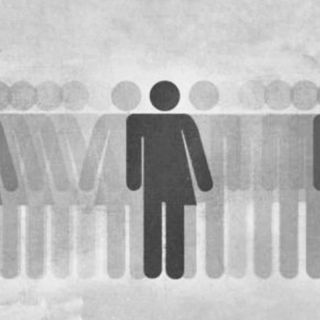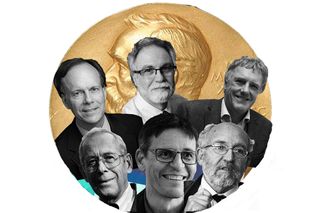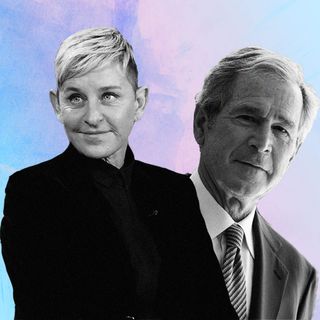
Is the Nobel Prize on Its Way to Being Outdated?
In 118 years, only 5% of Nobel awardees have been women and only 19% of awardees have hailed from outside the West.

Since October 4, the 2019 Nobel prizes in two categories — Physics and Physiology/Medicine — have been announced. Among the six winners, there are no women or people of color,which should be shocking. And yet, are we really surprised? Awards for Caucasian men from Europe and America are … boring and predictable at this point.
This year, Nobel feathers adorn the caps of William G. Kaelin, Jr., Sir Peter J. Ratcliffe, and Gregg L. Semenza as they jointly won the 2019 Nobel Prize in Physiology/Medicine for their discoveries of how cells sense and adapt to oxygen availability. The 2019 Nobel Prize in Physics was awarded for “contributions to our understanding of the evolution of the universe and Earth’s place in the cosmos” by James Peebles, Michel Mayor and Didier Queloz.
The remaining 2019 Nobel Prizes, in peace, literature, chemistry, and economics are yet to be announced. But already, opinions are making the rounds on social media and various publications, suggesting the Nobel Prize is becoming an outdated, obscure way of honoring people (men) and organizations.
For instance, Katherine Mack, who is a theoretical astrophysicist and an assistant professor of physics at North Carolina State University tweeted:
“I am thrilled to see Jim Peebles honored today with a Nobel Prize. At the same time, I think the Nobel Prize is a bizarre, outdated, and extremely non-representative way to honor contributions to science. Especially in physics, where only 3 out of 212 awardees have been women.”
A physics professor from Loyola University, Chicago, tweeted, “Congratulations to the recipients of the Nobel Prize in Physics, they all did terrific work and I know it must mean a lot to them. But personally, I can’t take it seriously, knowing the committee did everything it could to avoid awarding Vera Rubin only because she was a woman.”
Whether the Nobel committee intentionally dismissed Rubin’s work — she proved the existence of dark matter, essentially, before she died in 2016 at the age of 88 — is up for debate (and is currently a hot topic among physicists), but going by the numbers on the Nobel Prize’s own website, between 1901 (the year the first Nobel was given out) and 2018, only 51 women have received a Nobel award, among a total of 904 recipient individuals and 24 recipient organizations.
Related on The Swaddle:
It Took a Nobel Prize for a Female Scientist to Be ‘Notable’ Enough for Wikipedia
It was only last year, in 2018, and for the first time in 55 years, that Donna Strickland from Canada won the Nobel Prize in Physics for her discovery in the field of laser physics – an award she shared with two men, Arthur Askin from the US, and Gerard Mourou from France. (Also, notably, it was only after she received the award that Wikipedia thought her contributions deserved an entry.) Strickland’s physics honor was preceded only by two other women: Marie Curie, who received a Nobel in 1903 for her discovery of radioactivity, and Maria Goeppert-Mayer, who received a Nobel in 1963 for theoretical work on the structure of the atomic nucleus.
Strickland, while stressing on how she had, “always been treated as an equal,” told the BBC, “two men also won it with me, and they deserve this prize as much if not more than me.”
As compared to 204 men who have a Nobel Prize for Physiology/Medicine, only 12 women have received it; for Chemistry, 176 men have bagged the international honor, while only five women have won it so far. For Literature, as compared to 100 men, only 14 women have been Nobel laureates, and for Peace, while 89 men have been awarded the Nobel, 17 women have received it. The Nobel for Economics has been won by 80 men and just one woman.
One justification for the mismatch in numbers, The Guardian reports, is that “since Nobel prizes are often awarded to people later in their careers, the honors list reflects a time when laboratories were even less diverse than they are today. It is worth noting, that the age of winners has been increasing. Between 1931 and 1940 the average age of physics winner was 41; this decade it has been 68.”
Another point of view, offered by Jane Luu, an astronomer at the Massachusetts Institute of Technology’s (MIT) Lincoln Laboratory, is that the fields of physics and astronomy have a long history of being male-dominated and struggle with sexism; the gender gap means fewer women working in the field and therefore, eligible for award. “As early as elementary school, the gender gap in physics and math begins to open. And with each level of education, the number of women studying in the field drops. By the time they get to grad school and the lab, there are not that many of us,” said Luu to NPR. As true (and unfortunate) as that may be, the fact remains that this year’s Nobel Prize in Physics Washington Post “recognized theories on the ‘dark’ parts of the universe”, as Washington Post reporter Sarah Kaplan puts it, but didn’t acknowledge Rubin, who proved its very existence.
Another issue suggests this is more an excuse than a just explanation. There is not just a gender bias in Nobel Prizes glaring at us — there is a Western bias, too. 81% of Nobel laureates have been people from Europe, U.S., and Canada; since the prize’s inception, there have been only 17 African winners — of which only seven were from outside South Africa. 10 Indians have been awarded Nobels, among other Asians.
In a piece titled “Why Nobel Prizes Fail 21st-Century Science,” in The Guardian, cosmologist Brian Keating, from the University of California, San Diego said, “The Nobel Prizes have strayed far from the vision their founder had for them, and they badly need to be reorganized. … They reward an outdated version of science.” The same article quotes from Gene Machine, a book by Venkatraman Ramakrishnan, a joint winner of the 2009 Nobel Prize for Chemistry: “The [Nobel] prize has increasingly become a lottery” and is part of a global awards system “beset by cronyism,” Ramakrishnan writes.
In addition to the above criticisms, the Nobel is also under scrutiny because it fails to recognize other sciences such as mathematics, computing, artificial intelligence, and environmental sciences. Outdated seems accurate indeed.
UPDATE: Since publication, the 2019 Nobel Prize in Chemistry has been awarded to three more men — B. Goodenough, M. Stanley Whittingham, and Akira Yoshino, for their development of lithium-ion batteries. The 2019 Nobel Prize in Literature has been awarded to a man, Austrian playwright Peter Handke. The 2019 Nobel Peace Prize has been awarded to a man, Prime Minister of Ethiopia Abiy Ahmed Ali. And the 2019 Nobel Prize in Economics has been awarded to two men — Abhijit Banerjee and Michael Kremer — and one woman, Esther Duflo. Duflo is the second woman and youngest person ever to receive the economic science prize. Yoshino, Banerjee, and Ali are the only people of color honored by the Nobel committee so far this year; Yoshino and Ali are the only non-Westerners honored.
Related


Ellen DeGeneres Defends Friendship With George W. Bush, Says He Deserves Kindness
